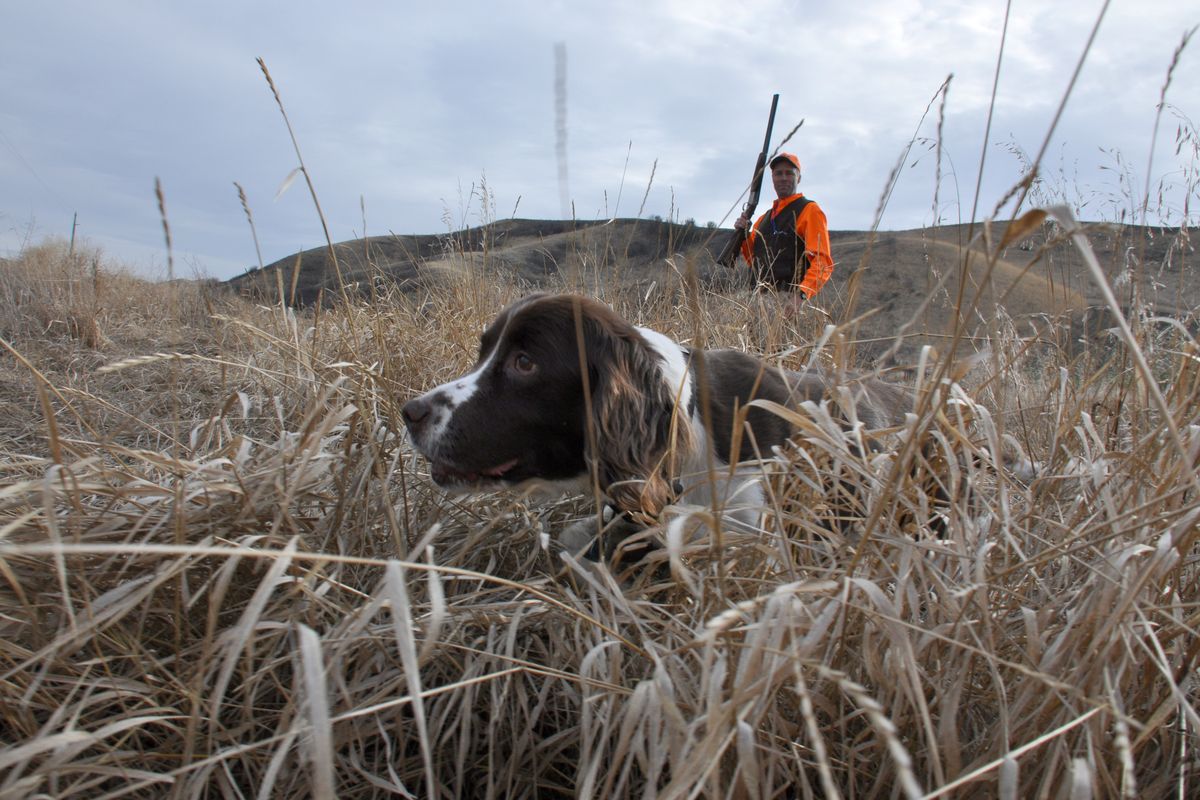Senior springer spaniel inspires desire for the hunt

I had the privilege to hunt with Solo a decade ago when he was young, athletic and fast enough to snatch a flushing pheasant out of the air before I could get the shotgun to my shoulder.
Last season I had the honor to hunt with the springer spaniel in the twilight of his career.
Still fit-looking and eyes full of eagerness for a romp in the Palouse, his age-wracked body responded in spurts as though he were a hot rod with carburetor issues. Getting old is complicated for a bird dog built with a turbo-charged heart for the game.
Among springer spaniels, Solo has always been the alpha male, a stud in every sense of the term. He’d have been a champion if his owner had preferred trophies to real hunting and pheasant stir-fry.
Solo would crash into anything – water, ice or even sharp-thorned blackberry vines – to retrieve a rooster, regardless of how much fur, hide and blood he had to sacrifice in the mission.
God help the dog that tried to compete with Solo in retrieving a downed bird.
He’d bulldoze through weeds and brush until his eyelids were loaded like a squirrel’s cheeks with seeds and debris. Hunters following the dog’s nose through a CRP field had to carry bottles of contact lens saline solution and occasionally squirt out the organic matter. Solo didn’t need to see to hunt, but he reluctantly took a break for these pit stops.
My friend, Torsten, didn’t have to make excuses for his dog during that last hunt last season, but he did.
“Solo’s lost the muscle mass in his hind quarters,” he said as the dog struggled uphill through some wild rose. “But look at him try. Just getting a nose full of pheasant scent would make his day.”
The springer had lost his spring, but not his desire.
“I hope I have half that much ambition in my old age,” I said.
Solo’s portion of the hunt was brief. Torsten was reluctant to hunt him at all.
“I hope you’re OK with the slow pace,” he said as we slogged up through an eyebrow. “I think the old dog deserves this hunt, even though it’s risky.
Minutes later, Solo’s tail picked up tempo. He surged through the brush and flushed a hen that accelerated everyone’s heartbeat as it rocketed away. Then the dog stopped cold to catch his breath.
“Oh, no,” I thought as he teetered back and forth.
“Yes!” I said as he perked up and marched on, legs wobbling, ambition intact.
“Could there be a better way for an old bird dog to die than on the trail of a pheasant?” Torsten wondered out loud.
We hunted the old springer a bit and my younger English setter a lot that day. The dogs did their jobs flushing, pointing and retrieving, putting up with our misses and pausing patiently for our praises even though they wanted nothing more than being released to hunt again.
Having left everything in the field by sunset, old dog and younger dog took their rightful portions of our sandwiches and flopped in the pickup like triathletes at the finish line.
“I’m not sure what breed of hunting dog I’ll own next,” Torsten said on the drive home. “But today reminded of one thing for certain: I don’t ever want to be a hunter without a dog.”